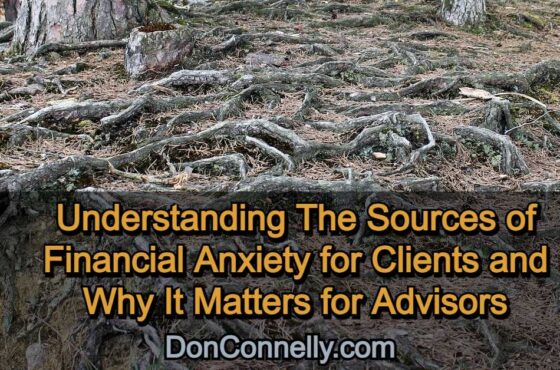Should FAs Allow Clients’ Political Opinions to Influence Their Investment Decisions?
 Here we are again—another presidential election year. If it’s like the last couple of elections, financial advisors are sure to see some clients wringing their hands over which candidate will win the White House and how that will impact the financial markets and their investments. At the very least, you’re likely to get an earful of some clients’ political viewpoints—which is fine if they don’t try to correlate them with how they should invest their money.
Here we are again—another presidential election year. If it’s like the last couple of elections, financial advisors are sure to see some clients wringing their hands over which candidate will win the White House and how that will impact the financial markets and their investments. At the very least, you’re likely to get an earful of some clients’ political viewpoints—which is fine if they don’t try to correlate them with how they should invest their money.
For decades, investors have tried to find some correlation between elections and investment performance, hoping it will foretell how a particular outcome will impact their portfolio so they can adjust their investment strategy appropriately.
Of course, if you search far enough, you might be able to uncover data that supports such a link. But you’re not going to find any that decisively shows a causal relationship or enough of one to warrant serious consideration for changing investment strategies based on election results. Still, some clients have such strong political views that they see a connection in all aspects of their lives, including how they invest their money.
Advisors should advise clients to keep politics out of their portfolios
Your job as their financial advisor is not to let a client’s political opinions influence their investment decision for several reasons:
It’s your fiduciary duty
You have a fiduciary obligation to always act in your client’s best interests. If you allow a client to make an investment decision based on their political beliefs, you may put yourself at risk of breaching this duty.
The market is efficient
Markets are generally seen as efficient in the long term, meaning prices reflect all available information, including political news. Therefore, basing investment decisions solely on political predictions is unlikely to result in improved outperformance.
Politics is emotional
Political opinions can be emotionally charged, and investing based on these emotions can lead to poor decisions, such as panic selling or chasing hot tips. A good advisor should help clients make rational, long-term investment decisions based on their individual needs and risk tolerance, not fleeting political sentiments.
Conflict of interest
An advisor’s own political beliefs could potentially bias their investment recommendations, creating a conflict of interest. It’s essential for advisors to remain impartial and make recommendations based on sound financial analysis, not personal politics.
Guiding clients around political landmines
However, this doesn’t mean that a client’s values should be completely ignored. Some clients may prioritize environmentally responsible companies or those aligned with their social values. A good advisor can work with clients to identify investments that align with their values while still adhering to sound financial principles and diversification strategies.
Your job is to educate, guide, and advise your client to make informed decisions in their best interests. Here are steps you can take if you sense your client is allowing their political opinion to influence their decision:
- Educate the client: Discuss the potential risks and benefits of politically motivated investing.
- Focus on long-term goals: Encourage the client to stay focused on their long-term financial goals and develop an investment strategy that aligns with them, regardless of the current political climate.
- Offer options: Explore various investment options that may appeal to the client’s values while remaining financially sound.
- Maintain open communication: Encourage open communication with clients about their concerns and goals and adjust the investment strategy as needed.
The market doesn’t care who’s in Office
As it relates to this year’s election, it would be essential to remind your clients that the stock market doesn’t care who is elected. The market doesn’t care about who or what party is in control; it only cares whether things are getting better or worse. Beyond that, it sees nothing but uncertainty.
You should advise your clients to look at a presidential election as they would any short-term event, which means to ignore it. While the stock market can and does respond to short-term events, it is constantly adjusting in anticipation of changes in the economy six to 12 months out. Whatever happens today or later this year, as in the election, if the market determines its short-term event with short-term implications, it will still keep its attention on the future.
Ultimately, the role of a financial advisor is to guide clients toward making informed and rational investment decisions based on their individual circumstances and financial goals, not their political opinions.
Watch this 3-minute video to learn how our Volatility & Bear Market Tool Kit can help you calm client fears and win over new business during market uncertainty.
See what’s in the toolkit and gain access today!
6 videos, 6 audios, 1 webinar replay, 13 PDF downloads and links to various resources included. Get it now for $179! You can even take advantage of the ‘Pay Later’ option if you have a PayPal account and pay in 4 equal installments in the coming weeks.



